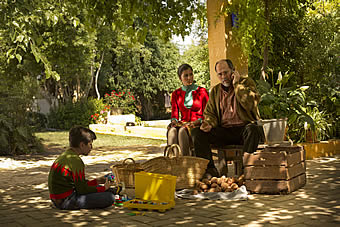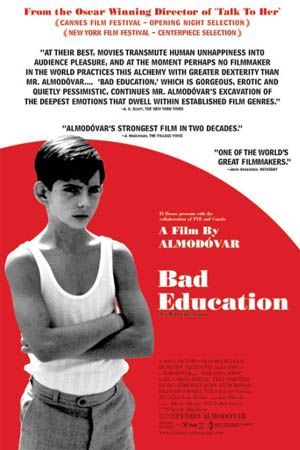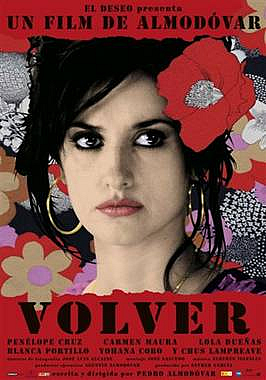JULIETA (2016)
Genre: Drama/Romance
Director: Pedro Almodóvar
Cast: Adriana Ugarte, Emma Suárez, Daniel Grao, Darío Grandinetti, Inma Cuesta, Rossy de Palma, Michelle Jenner
Runtime: 1 hr 39 mins
Rating: M18 (Sexual Scenes)
Released By: Shaw
Official Website:
Opening Day: 29 December 2016
Synopsis: Julieta lives in Madrid with her daughter Antía. They both suffer in silence over the loss of Xoan, Antía’s father and Julieta’s husband. But at times grief doesn’t bring people closer, it drives them apart. When Antía turns eighteen she abandons her mother, without a word of explanation. Julieta looks for her in every possible way, but all she discovers is how little she knows of her daughter. JULIETA talks about the mother’s struggle to survive uncertainty. It also talks about fate, about guilt complexes and about that unfathomable mystery that leads us abandon the people we love, erasing them from our lives as if they had never meant anything, as if they had never existed.
Movie Review:
After the trippy but ultimately exhausting high-altitude frivolity of 2013’s ‘I’m So Excited’, Spanish auteur Pedro Almodovar returns to more serious territory with ‘Julieta’, adapted from three short stories by Canadian author Alice Munro from her 2004 volume ‘Runaway’. Set across two time periods spanning a quarter-century, it is a tale of two Julietas: the present-day Julieta (Emma Suarez) a middle-aged woman who is about to leave Madrid for Portugal with her partner Lorenzo (Dario Grandinetti), for whom a chance encounter with a childhood friend of her estranged daughter Antia unleashes a torrent of memories; and the younger Julieta from the 80s (Adriana Ugarte), a young and gifted teacher of classical literature, for whom a chance encounter with a handsome young fisherman Xoan (Daniel Grao) on board a nocturnal train journey will lead to a romance with life-changing consequences (and yes, if you’re guessing, Xoan is indeed the father of her daughter Antia).
Already from that brief description, those familiar with Almodovar’s works will recognise some familiar themes in his female-centric stories – random fate, buried secrets, and unfathomable guilt. Fate not only determines that the present-day Julieta face up to the ghosts of her past and the younger Julieta give up her passion for teaching to start a new life with Xoan, but also would have that Xoan and Julieta land in a bitter argument just before a tragic accident at sea claims his life and fractures the relationship between Julieta and Antia irrevocably. More than the loss of their loved one, it is silence that proves to be the true villain, leading both mother and daughter to internalise their grief that leads to the chasm between them. Such buried secrets, in Julieta’s case, precipitates that yawning sense of guilt that no individual can ultimately run away from, which Julieta tries to relieve by penning her thoughts – as if explaining herself to Antia – of her earlier adult life.
In the hands of a lesser director, such a character study on the subject of loss could have easily turned into a melodrama; and yet, Almodovar demonstrates elegant restraint in depicting grief, guilt and burden. In fact, Almodovar’s storytelling resembles a Hitchcockian thriller in the way that it pieces together Julieta’s life through extended flashbacks, such that we know something terrible had to have happened to cause the rift between Julieta and Antia but are kept pretty much in suspense till the third and final act. It isn’t just Hitchcock that Almodovar has obviously drawn inspiration from – it is no mere coincidence that Julieta’s first encounter with Xoan plays out as strangers on a train, with a death thrown in no less, which surely is reference to mystery writer Patricia Highsmith’s works (especially given how one character makes mention that he is becoming a Highsmith obsessive). And yet, the surest proof the somewhat unconventional narrative structure works for such a drama is in perhaps the film’s most brilliant metaphor, where the younger Julieta disappears under a towel as a teenage Antia dries her hair to become her rueful older self.
That reveal is classic Almodovar, and the same can be said of ‘Julieta’ as a whole. For one, Almodovar retains a bright lush visual palette throughout the film, beginning with a close-up on the undulating folds of a crimson dress right to the parting image of a bright blue car making its way around the mountain bends next to the ocean. The bold splashes of red, blue and yellow are part of Almodovar’s colourful compositions, and from paintings (a Lucien Freud hangs on the wall) to costumes (Julieta’s robe is printed in a Gustav Klimt pattern) to props (is that a book about the composer Ryuichi Sakamoto lying on the table?), ‘Julieta’ reflects his own personal eclectic imagining of contemporary Spain that will come across exquisite to his fans but indulgent posturing to his critics. Besides looking distinctively Almodovar, Alberto Iglesias’ lustrous yet mournful soft-jazz score also makes sure it sounds just as exquisite, emphasising not only his characters’ inner turmoil but also the noir elements of his ravishing drama.
But more than just being beautiful to look at, ‘Julieta’ is a heartbreaking depiction of coping with loss, dealing with grief and hoping for reconciliation. It also holds a significant lesson for parents, whether mothers or fathers, in how the loss of the other is as distressing – if not more – for their children, for whom not talking about it may lead to suppressed emotions that end up in either fear or resentment. Complemented by two contrasting performances by Suarez and Ugarte both raw and powerful in their own ways, ‘Julieta’ soars as a gripping mystery of emotional intrigue and ultimately poignancy. There’s no point comparing this against his other works (given how many of them he’s made that are worthy of praise), but this is certainly one of complexity, ambition and brilliance, deserving to be seen opposite ‘All About My Mother’, ‘Talk to Her’, ‘Bad Education’ and ‘Volver’ as one of his masterworks.
Movie Rating:




(A ravishing portrait of grief, guilt and burden at the centre of a mother-daughter estrangement, ‘Julieta’ is a welcome return for the Spanish auteur to his complex female-centric masterworks)
Review by Gabriel Chong
You might also like:
.jpg)
Movie Stills










